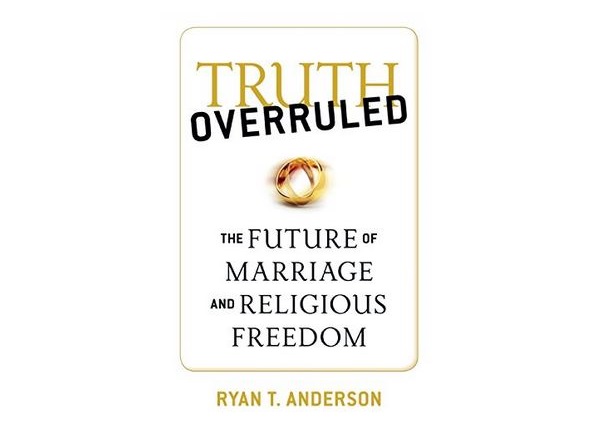Here is Jonathan V. Last writing about Ryan T. Anderson’s new book Truth Overruled: The Future of Marriage and Religious Freedom: “I cannot recommend it highly enough.”
Anderson has pulled of a great trick with Truth Overruled: He’s written a book that should be of interest not just to proponents of traditional marriage, but to the people who have advocated for redefining marriage, too. That’s because what he does is distill, in an even-handed and philosophical manner, exactly what the arguments are for traditional marriage and what the costs to society are likely to be from redefinition.
Truth Overruled is so pithy and lean that I could quote the entire thing back at you. But I want to focus on two of Anderson’s larger points.
The first is that when it comes to marriage, you can either have the traditional standard, or no standards, for defining the institution.
Marriage is, as Anderson explains, a human institution which predates the state. Why did it form? In order to make men and women responsible to one another, and to maximize the outcomes for both the adults and any children which result from their union. As such, “Marriage is society’s least-restrictive means of ensuring the well-being of children.”
The people who want to transform marriage to include same-sex relationships have, whether they know it or not, not just a practical goal, but a philosophical one, too: They want, as Anderson puts it, to turn marriage into “an instrument for gratifying the emotions of adults.”
…
Once you move away from the original purpose and definition of marriage, you enter a world in which the institution is infinitely plastic. Which means that if you support same-sex marriage today, you need to be comfortable with whatever marriage will be defined as tomorrow. And there will be future redefinitions.
Read more: The Weekly Standard

